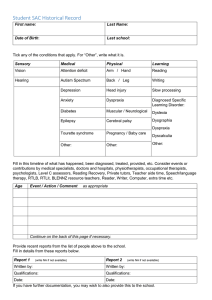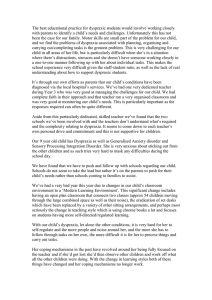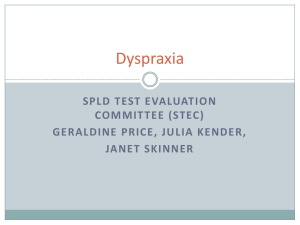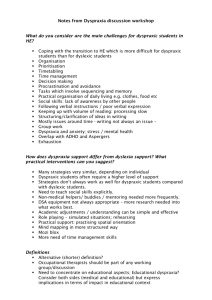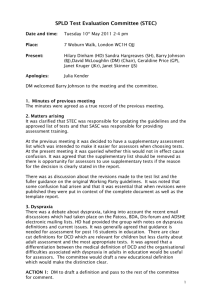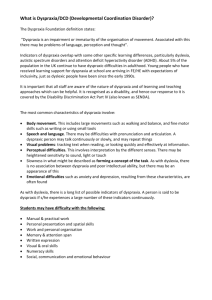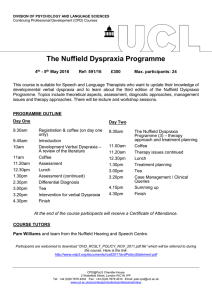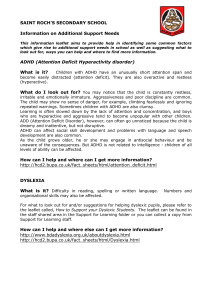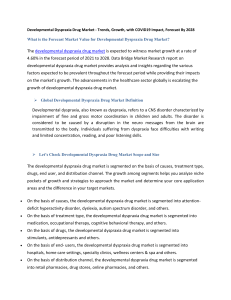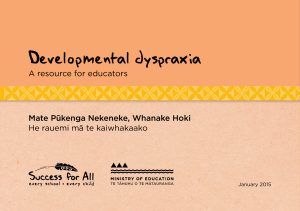Dyspraxia (opens in a new window)
advertisement
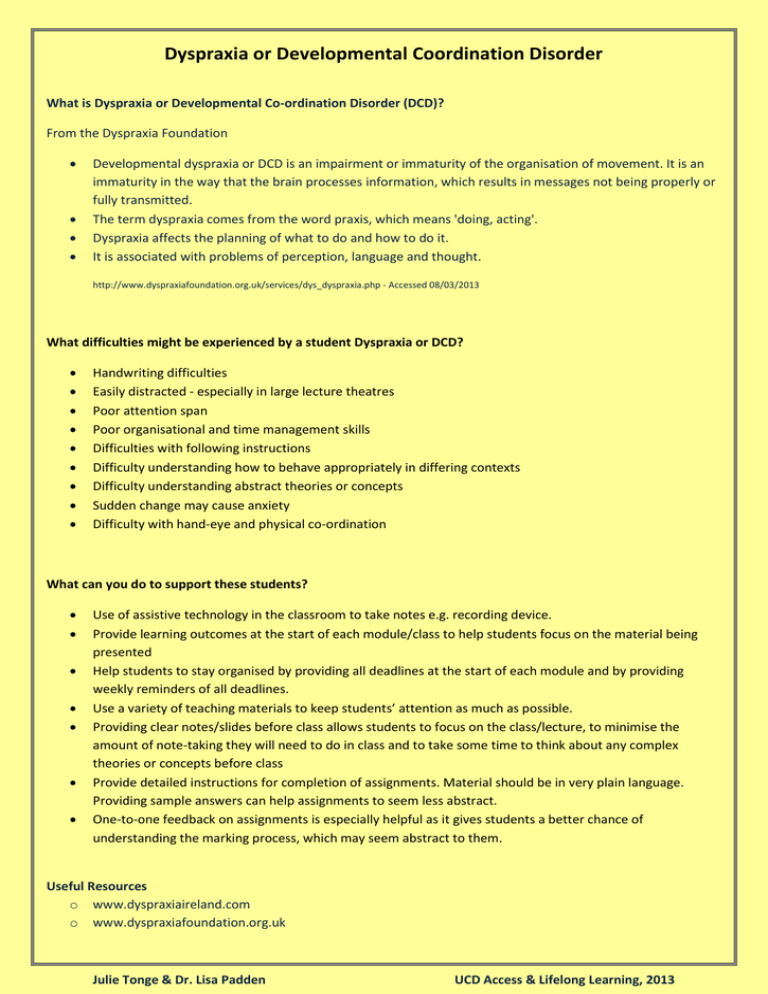
Dyspraxia or Developmental Coordination Disorder What is Dyspraxia or Developmental Co-ordination Disorder (DCD)? From the Dyspraxia Foundation Developmental dyspraxia or DCD is an impairment or immaturity of the organisation of movement. It is an immaturity in the way that the brain processes information, which results in messages not being properly or fully transmitted. The term dyspraxia comes from the word praxis, which means 'doing, acting'. Dyspraxia affects the planning of what to do and how to do it. It is associated with problems of perception, language and thought. http://www.dyspraxiafoundation.org.uk/services/dys_dyspraxia.php - Accessed 08/03/2013 What difficulties might be experienced by a student Dyspraxia or DCD? Handwriting difficulties Easily distracted - especially in large lecture theatres Poor attention span Poor organisational and time management skills Difficulties with following instructions Difficulty understanding how to behave appropriately in differing contexts Difficulty understanding abstract theories or concepts Sudden change may cause anxiety Difficulty with hand-eye and physical co-ordination What can you do to support these students? Use of assistive technology in the classroom to take notes e.g. recording device. Provide learning outcomes at the start of each module/class to help students focus on the material being presented Help students to stay organised by providing all deadlines at the start of each module and by providing weekly reminders of all deadlines. Use a variety of teaching materials to keep students’ attention as much as possible. Providing clear notes/slides before class allows students to focus on the class/lecture, to minimise the amount of note-taking they will need to do in class and to take some time to think about any complex theories or concepts before class Provide detailed instructions for completion of assignments. Material should be in very plain language. Providing sample answers can help assignments to seem less abstract. One-to-one feedback on assignments is especially helpful as it gives students a better chance of understanding the marking process, which may seem abstract to them. Useful Resources o www.dyspraxiaireland.com o www.dyspraxiafoundation.org.uk Julie Tonge & Dr. Lisa Padden UCD Access & Lifelong Learning, 2013
